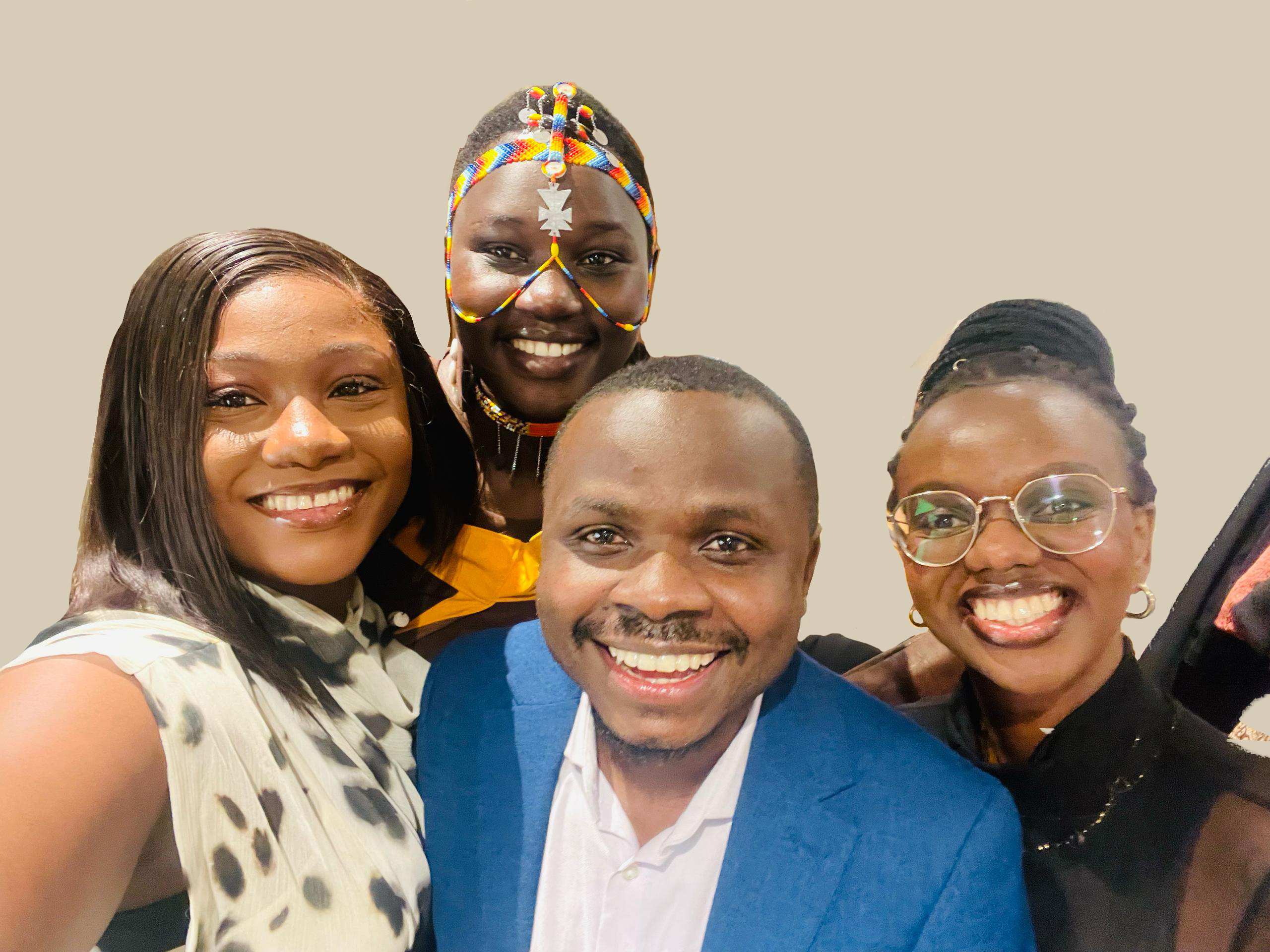
Civil engineer Laura Kasuni Wathe came to Cambridge to pursue an MPhil with one goal in mind: to take learnings about systems thinking, resilience, data use and user-centred design, and apply it in the African context, with the aim to contribute to sustainable development at scale.
This experience has changed my outlook. Thinking about infrastructure not just as a technical product but as a service delivered to people is something I’ll carry forward into my career.
Laura Kasuni Wathe
“Growing up in Kenya and practising as a civil engineer, I saw how project delays and budget overruns crippled progress,” said Laura.
“It was frustrating, especially when you know that the social and economic impact of stalled infrastructure in a rapidly urbanising country can be severe. This is what led me to Cambridge – I want to be part of a generation of engineers who are not just building infrastructure, but building futures that are resilient, inclusive and climate-conscious.”
Laura, a Mastercard Foundation Scholar, has been studying for an MPhil in Engineering for Sustainable Development (ESD) and will soon return to Africa.
Developing new approaches to problem solving
A highlight of Laura’s Cambridge experience has been working on a collaborative project using data to reduce delays and cost overruns in the construction sector – a challenge close to her heart, given her first-hand professional experience in Kenya, both on-site and in high-level planning.
“I worked in the construction sector, where I was involved in mega infrastructure projects in Kenya's capital Nairobi, and in rural road infrastructure projects that had only a handful of site workers. Despite the differences in scale, most, if not all these projects were never delivered on time, nor within budget. Poor coordination, scarce data and reactive decision-making created a vicious cycle of cost overruns, contractor disputes and even project abandonment.”
Laura’s involvement in the University’s Innovation i-Teams programme, which brings entrepreneurial post-grads and early-career researchers together to explore the commercial potential of cutting-edge University inventions, lasted for a period of eight weeks.
“i-Teams completely shifted how I approach problem solving,” she said. “It wasn’t just about brainstorming ideas, we had to validate our assumptions with end users and industry experts, map out the technology ecosystem, and think through how impact could scale.”
She added: “The experience has changed my outlook. I now approach not just engineering problems, but all challenges, from both a systems and human-centred design perspective. That dual view – thinking about infrastructure not just as a technical product but as a service delivered to people – is something I’ll carry forward into my career.”

Laura, pictured far right, with some of her fellow Mastercard Foundation and Churchill Scholars.
Designing cities that work for everyone
The MPhil in ESD has challenged Laura (Churchill College) to think about what it takes to design cities that work for everyone. Her dissertation explores the relationship between socio-demographic vulnerability and flood-related transport disruption in London, England.
Laura said: “My dissertation aims to answer the question: are people who are already disadvantaged due to income, age or disability, more exposed to the impacts of climate change on transportation?”
“By spatially analysing flood risk, transport networks and demographic data, I aim to identify areas where inequalities are being worsened by climate risks. The findings could inform targeted climate adaptation measures and resilience planning, contributing to strategies like the UK’s National Adaptation Programme.
“In the long term, this kind of research has the potential to reduce transport poverty and systemic inequities that climate change threatens to deepen. It is about designing cities that work for everyone, not just those with the resources to adapt.”
A holistic development experience
As a Mastercard Foundation Scholar, Laura has received training from the Cambridge Institute for Sustainability Leadership (CISL), with the aim of supporting her in contributing to climate resilience and sustainability.
“The scholarship isn’t just tuition support, it’s a holistic development experience,” said Laura. “We have been supported to grow as transformative leaders and scholars.”
Established in 2022, as a collaboration between the University and the Mastercard Foundation, more than 500 Scholars from the African continent will have enrolled in the Mastercard Foundation Scholars Program by 2030. This fully funded opportunity to complete a one-year Master’s degree, also involves developing transformative leadership skills and aims to contribute to climate resilience and sustainable futures in Africa.
Laura’s journey began two weeks before Michaelmas term officially started, allowing her to meet all the 58 scholars from across Africa for the first time, providing a welcome opportunity to build connections.
“Those early interactions, coupled with our monthly catch-up meetings, were crucial in building and solidifying friendships. The sense of community has been incredibly supportive for me, especially being so far from home, and for many of us, we were navigating a Cambridge winter for the first time, which can be quite brutal! I truly feel like I've made lasting friends, people I can always rely on.”
As a Mastercard Foundation Scholar, there have also been opportunities for Laura to receive innovation and entrepreneurship training. She participated in the Social Venture Residential in collaboration with King’s College’s Entrepreneurship Lab, and more recently, she competed in the Mastercard Foundation Scholars Entrepreneurship Fund, winning second prize alongside her co-founder. The prize was awarded for their venture focused on reducing education inequality in Kenya by improving access to reliable electricity via solar power.

Laura, left, and her co-founder presenting their social venture during the Mastercard Foundation Scholars Entrepreneurship Fund competition.
Looking to the future
“I’m grateful for having been given the chance to immerse myself in the University of Cambridge's vibrant entrepreneurship ecosystem,” said Laura. “A big shoutout to my teammates and mentors – you have made this an unforgettable experience. Here's to turning challenges into opportunities and to shaping a future full of impactful innovations!”

